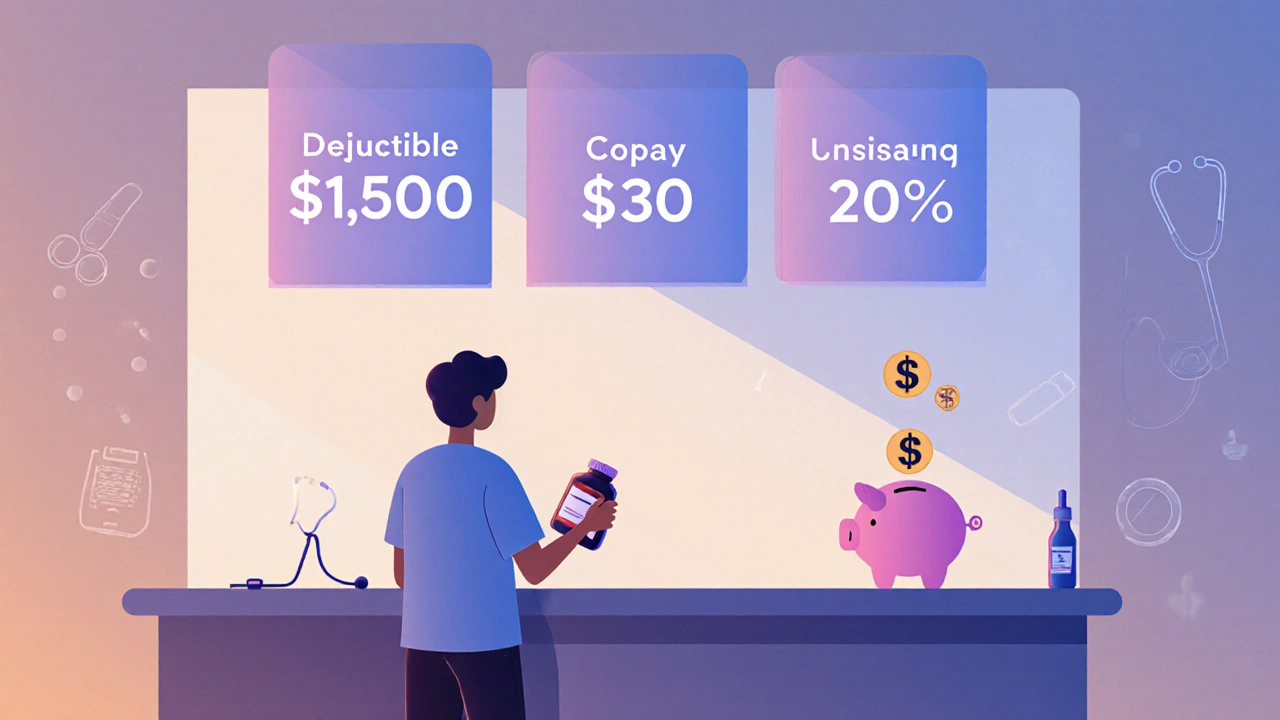
Horse urine. That's right—Premarin, one of the most prescribed drugs for menopause, comes straight from pregnant mares' urine. Doesn't sound glamorous, but for decades, this pill has changed lives for people dealing with the rollercoaster of menopause. At the heart of it, Premarin is an estrogen therapy, and the story behind its popularity, controversy, and effectiveness is a tangled one. It's not just about hot flashes or night sweats—it's about quality of life, identity, and choices faced by millions of women (and even some men) all over the world.
What Exactly Is Premarin?
Premarin isn't your average hormone pill. The name comes from its source: "PREgnant MARes' urINe." Yes, it's a collection of different estrogens extracted from the urine of pregnant horses. The FDA first approved Premarin back in 1942, and by the 1990s, it had become the bestselling drug in the US for hormone replacement therapy (HRT). What's actually in a pill? It's mostly conjugated estrogens—a mix of several estrogen compounds, not just the kind your body usually makes. This blend is what makes Premarin effective, but also controversial.
Pharmaceutical companies collect urine from pregnant mares on specially managed farms, then extract the hormones. These are processed, standardized into tablets or creams, and prescribed for conditions linked to low estrogen—menopause symptoms, certain sexual health problems, and even osteoporosis prevention for some postmenopausal women. Critics often raise animal welfare concerns about these farms, and some folks aren't comfortable with the animal origin, but for others, Premarin is a lifeline. The alternative "bioidentical" estrogens often come from plants and are marketed as more natural, but they're not necessarily safer or more effective—the science is still cloudy on that.
Why is Premarin special? For one, it's the only estrogen therapy made this way, and it contains a broader mix of estrogen types than synthetic or plant-derived alternatives. Every tablet packs a small but complex blend, which some clinicians believe gives it an edge over single-molecule therapies (like estradiol-only pills). But this comes with a flipside: not everyone responds to Premarin the same way; some people feel terrific, others deal with side effects, and a few see little improvement in symptoms.
How Premarin Works in the Body
Estrogen does way more than just drive periods and fertility—it touches everything from bone health to mood, brain fog, bladder function, and skin elasticity. With menopause, natural estrogen levels plummet by as much as 90%. Cue night sweats, hot flashes, trouble sleeping, vaginal dryness, mood swings, and even memory lapses. This is where Premarin steps in.
When a person swallows a Premarin tablet (or uses a Premarin vaginal cream), those conjugated estrogens get absorbed into the bloodstream. Once there, they bind to estrogen receptors all over the body—think bones, blood vessels, the lining of the uterus, brain cells, and even skin. The effects can be dramatic: hot flashes typically cool down, sleep improves, and vaginal tissues regain moisture and elasticity. Studies have shown improvements in bone mineral density, which means fewer fractures and less chance of osteoporosis for many women using the right dose for a sustained period.
But it’s not just about the good stuff. Estrogen is powerful, and boosting its levels artificially can throw other systems out of whack. That's why doctors often prescribe the lowest effective dose for the shortest possible time. If a woman still has a uterus, they'll usually pair Premarin with a progestin to reduce the risk of endometrial cancer. The way Premarin interacts with everyone’s system is unique, though. Some women describe a huge upswing in energy, sharper memory, and just feeling "like myself again." Others notice side effects—breast tenderness, swelling, headaches, or even mood dips. And then there are a handful of users who get nothing but frustration from it. The mystery lies in the blend—and in the complexity of an individual's own body chemistry.

Who Uses Premarin and Why?
The biggest group are women experiencing the symptoms of menopause—they're the classic patients. But the uses go far beyond. For people who entered menopause super early, either naturally or after surgery, Premarin helps bridge the hormonal gap until they're closer to the natural age for menopause. People assigned female at birth but living with certain conditions that lower estrogen (like primary ovarian insufficiency or certain cancers) may get a prescription, too. There's also a smaller but important group: transgender women undergoing male-to-female gender affirmation. Premarin can be part of a broader medical regimen to induce and maintain feminine traits. And, believe it or not, some men use Premarin for prostate cancer, because estrogen drops testosterone and slows tumor growth.
But prescriptions aren’t handed out like candy. Doctors question candidates closely—age, health, personal and family history of things like breast cancer, heart disease, or blood clots. Smokers, for instance, generally get steered toward non-hormonal alternatives due to higher clot risk. Anyone with a previous stroke, blood clots, or certain cancers is likely to be told no. The current medical advice holds that HRT, and especially Premarin, should be tailored to individual needs and reviewed every single year—no set-and-forget here. Even the route of delivery matters: oral tablets, applied creams, and vaginal rings all hit the body a little differently. Some people experiment between them before finding the sweet spot.
Culturally, there's a divide too. Some swear by HRT as essential for quality of life—nothing else lets them care for grandkids, keep working, or enjoy sex. For others, it's a last resort, only to be considered after every herbal tea and yoga class has left them suffering. And then, of course, there's the anti-aging crowd, where Premarin's uses get fuzzier—and riskier—since estrogen therapy isn't a magic fix for wrinkles or weight loss, even if some desperate to hang onto youth wish it were.
Risks, Side Effects, and Controversies
The debate around Premarin wouldn’t be so intense if it were all sunshine and rainbows. The big shadow hanging over HRT came in 2002, when the Women's Health Initiative (WHI) published a study stirring up the medical world. Millions panicked when media headlines screamed about increased risks of breast cancer, heart disease, and strokes linked to combination hormone therapy (estrogen plus progestin). Prescriptions dropped overnight. The science, though, is more nuanced. Subsequent analyses showed that for women under 60 starting HRT close to menopause, the absolute risks are much lower than first suggested. But yes, the risks are real and deserve careful consideration.
Why do some women face more problems? Genetics and lifestyle play a big part. The chance of developing breast cancer goes up a little with long-term Premarin use, but mostly when it's taken with a progestin and over many years. Blood clot risk is the other major concern, especially for women who smoke, have a family history, or have already had clotting problems. There are also common side effects—nausea, bloating, headaches, and mood changes—that might mean a particular user needs a different dose, a different type of hormone, or even to stop altogether. Less talked about, but just as real, are the anecdotes: some people gain weight, notice skin changes, or develop migraines not traceable in a clinical trial but obvious in daily life.
The animal rights angle fires up debate, too. The methods used to collect mare urine have been criticized for being stressful on the horses, with advocacy groups pushing for transparency and better welfare standards. This controversy spurred interest in non-animal HRT alternatives, like plant-based estrogens. But again, the jury is out on whether these are truly "better," as not every alternative is tested as rigorously, or as effective for every symptom.
Then there’s the black market issue. Some desperate for symptom relief turn to friends, online forums, or shady sellers when their doctors hesitate to prescribe. That's never a good idea—dosage errors, counterfeit meds, or hidden contaminants can sneak in. The safest way to navigate Premarin or any HRT? Honest conversations with a provider who actually keeps up with current research and listens to each patient's real-world experience.

Tips for Using Premarin and Real-Life Advice
If you’re starting on Premarin, don’t expect instant magic or a single script for everyone. Track your symptoms day by day—write down what changes: sleep, mood, joint pain, libido. Doctors rely on this sort of info to fine-tune the dose or switch you to a different form if needed. If you notice anything weird or uncomfortable within the first couple of weeks, mention it. The vast majority of serious side effects happen early, not months down the line. Vaginal creams or rings are milder for those mainly dealing with dryness, but oral tablets work system-wide and tackle hot flashes more directly. Choosing between them can take a little trial and error.
Never skip routine health checks: mammograms, pelvic exams, and blood pressure checks are extra important on HRT. If you smoke, quit—both for your own health and to keep your risk profile as low as possible on Premarin. And movement matters: even light exercise helps with the bone and heart changes that menopause—and hormone therapy—can bring. If you’re on other meds, check for interactions. Some epilepsy or blood-thinner meds, for example, can mess with how Premarin works in your system. And if you ever need major surgery, your doctor might pause HRT in advance to cut clot risk.
It’s also smart to stay up-to-date on guidelines; opinions on when to start, stop, or shift dose do evolve as new evidence pops up. Pay attention to your own body above all noise—don’t let anyone dismiss your symptoms or pressure you into a therapy you’re not comfortable with. If doctors use confusing jargon or steamroll you, shop around for someone who really listens. Some clinics offer classes or support circles for people on HRT; there’s often a lot of wisdom in shared experiences. And don’t underestimate the power of keeping your mental health in check: mood changes and anxiety are real parts of the menopausal puzzle, whether or not you're taking hormones.
Lastly, read your prescription insert. The tiny print matters. Know how to take your pills (with or without food, what to do if you miss a dose), and what warning signs—like chest pain or sudden headaches—mean you should call your provider fast. And if Premarin just isn’t working for you? That’s okay. There are other options, and no shame in moving on until you find something that matches your needs and lifestyle best.






krishna raut
May 31, 2025 AT 00:04Premarin works for some, but the horse urine thing still gives me the creeps. If there’s a plant-based alternative that’s just as effective, why not use it? Simple.
Prakash pawar
June 1, 2025 AT 05:20you know what’s more unnatural than horse pee? synthetic hormones made in a lab by people who’ve never held a living thing in their hands. we’ve lost touch with the rhythm of nature and now we’re surprised when our bodies rebel. premarin? it’s not a drug-it’s a bridge back to the earth. sure the mares are stuck in stalls but so are we stuck in our heads. maybe the real problem isn’t the urine-it’s that we think we’re above biology.
MOLLY SURNO
June 2, 2025 AT 13:07This is one of the most balanced, well-researched explanations of Premarin I’ve read. The distinction between absolute and relative risk in the WHI study is critical, and too often overlooked in public discourse. Thank you for highlighting individual variability and the importance of personalized care.
Alex Hundert
June 3, 2025 AT 19:57People act like Premarin is some evil invention, but if you’ve suffered through menopause without it, you’d understand. I was crying in the shower every morning from hot flashes. After three weeks on Premarin? I slept through the night for the first time in two years. Animal origin? Fine. I’ll take horse pee over suffering any day.
Emily Kidd
June 3, 2025 AT 22:59so i started premarin last year and honestly? game changer. but i missd my dose once and felt like a zombie for two days. also the vaginal cream? holy god. it’s like magic for dryness. just dont forget to wash your hands after. i learned that the hard way. also side effects are real but so is the relief. talk to your doc, not reddit.
Justin Cheah
June 4, 2025 AT 02:07you ever wonder why the FDA approved horse urine as medicine in 1942? because big pharma already owned the farms and the doctors and the research grants. this isn’t science-it’s a corporate monopoly disguised as treatment. they keep pushing premarin because it’s patented and profitable. bioidenticals? cheaper, safer, and made from yams-but they can’t patent nature so they bury the studies. the real conspiracy isn’t the mares-it’s the fact that your doctor gets paid to push the most expensive option. ask yourself: who benefits? not you.
caiden gilbert
June 5, 2025 AT 14:44There’s something haunting about the idea that millions of women are taking hormones distilled from the tears and sweat of pregnant horses. It’s poetic in a weird, tragic way-like a silent pact between biology and capitalism. We’re all just trying to survive our own bodies, and sometimes that means accepting the grotesque as medicine. I don’t judge the users. I just feel the weight of it.
phenter mine
June 5, 2025 AT 14:55i just wanted to say i’ve been on premarin for 5 years and it saved my life. my hot flashes were so bad i quit my job. now i can play with my grandkids again. the only thing i messed up? i thought the cream was for my face lol. i applied it to my cheek once. it was fine but i looked like a confused raccoon. anyway-thank you for writing this. it helped me feel less alone.
Aditya Singh
June 7, 2025 AT 03:50Let’s deconstruct the pharmacokinetic profile of conjugated equine estrogens vis-à-vis endogenous estradiol bioavailability. The C18 methyl group in equilin introduces non-physiological receptor binding affinity, which leads to differential transcriptional modulation in hepatic SHBG synthesis versus peripheral ER-alpha activation. Ergo, the risk-benefit calculus is skewed toward thrombotic events in metabolically compromised phenotypes. Also, the mare welfare argument is performative virtue signaling-modern facilities are ISO-certified. You’re all missing the point.
Katherine Reinarz
June 7, 2025 AT 15:40my mom died of breast cancer after 10 years on premarin and now i can’t even look at a horse without crying. i hate this drug. i hate that they told her it was safe. i hate that no one warned her. i hate that people still use it like it’s a vitamin. i hate that no one listens when you say it’s not worth it. i hate that i’m the only one who remembers.
John Kane
June 9, 2025 AT 06:40Hey everyone-just want to say how much I appreciate this thread. We’re all coming from different places: some of us are scared, some are grateful, some are angry, some are just trying to understand. And that’s okay. Premarin isn’t a villain or a miracle-it’s a tool. And like any tool, it’s about how you use it, who’s guiding you, and whether you feel heard. If you’re on it, I see you. If you’re scared to start, I see you. If you quit because it didn’t work, I see you. If you’re mad about the horses, I see you. We don’t have to agree, but we can respect each other’s journeys. You’re not alone in this. And if you need someone to talk to about it? I’m here. Always.